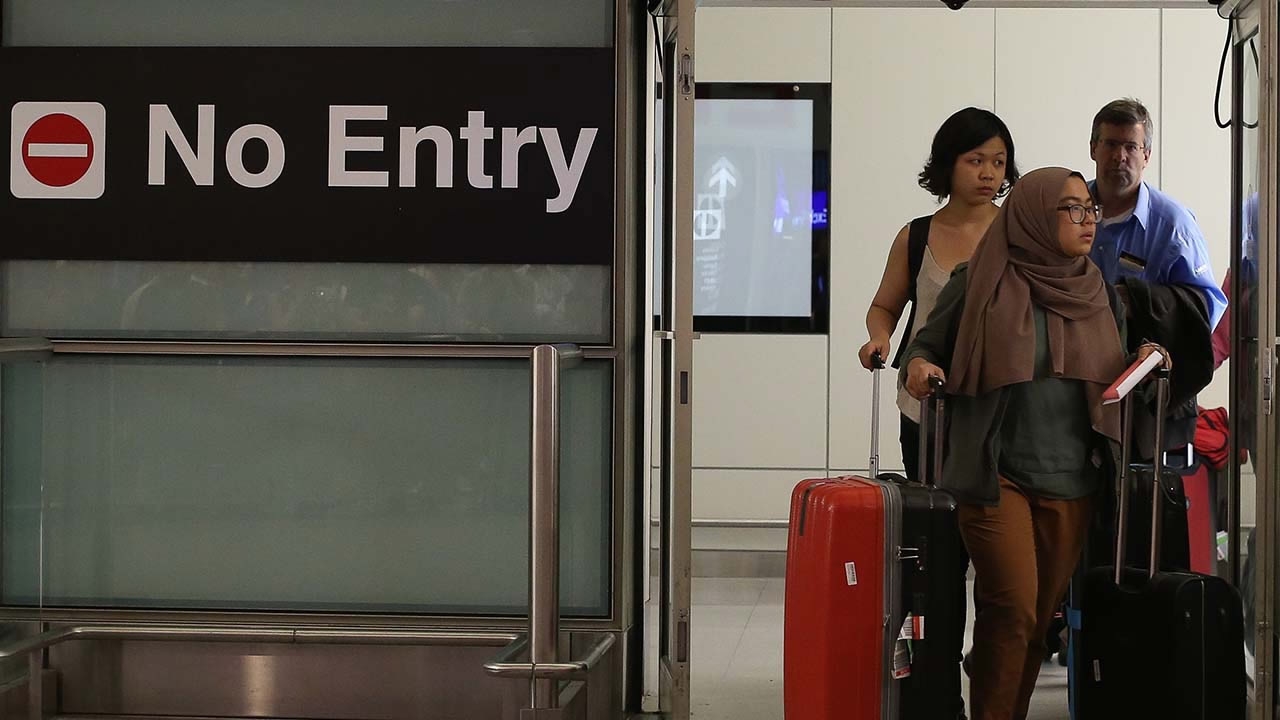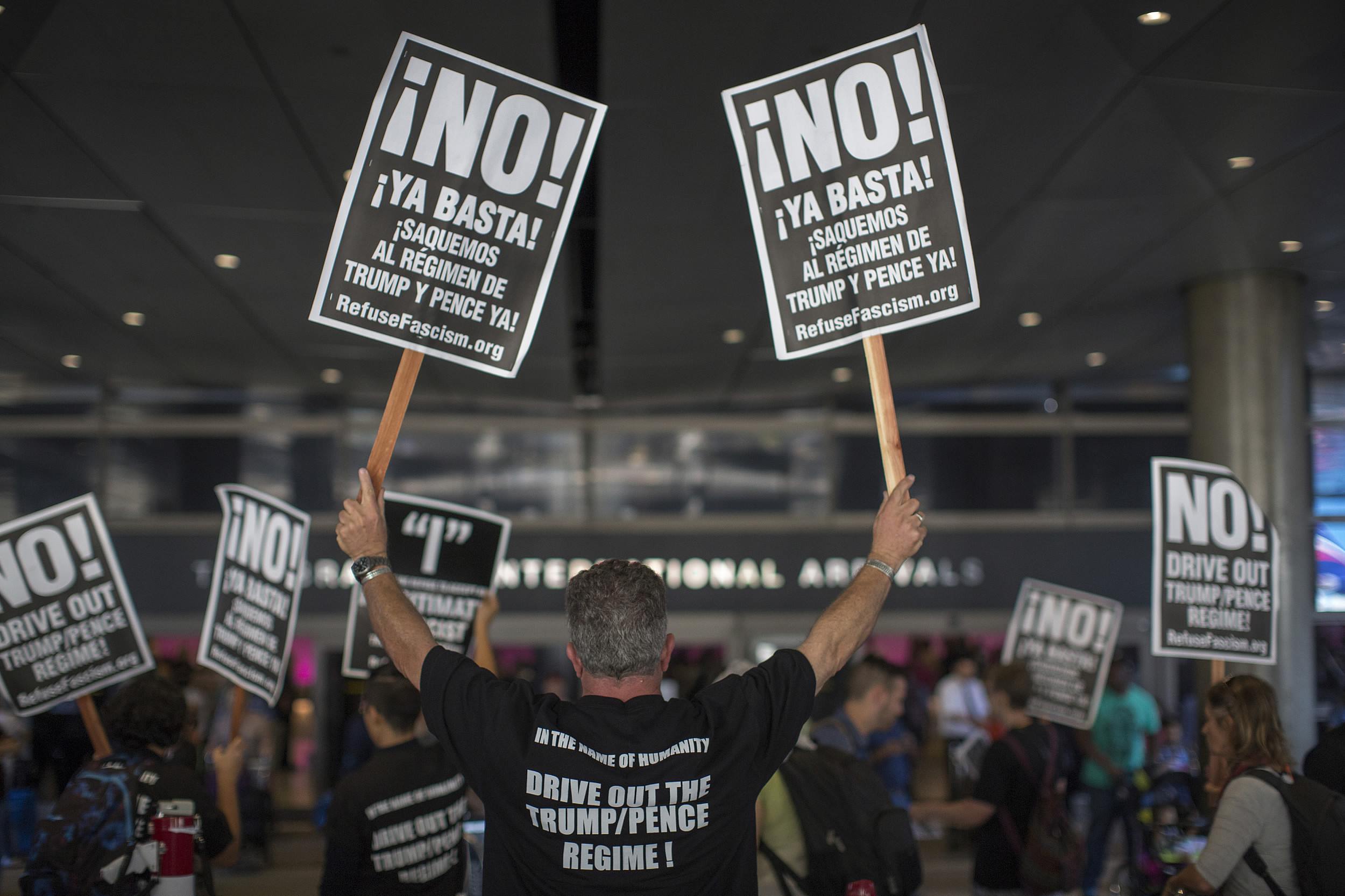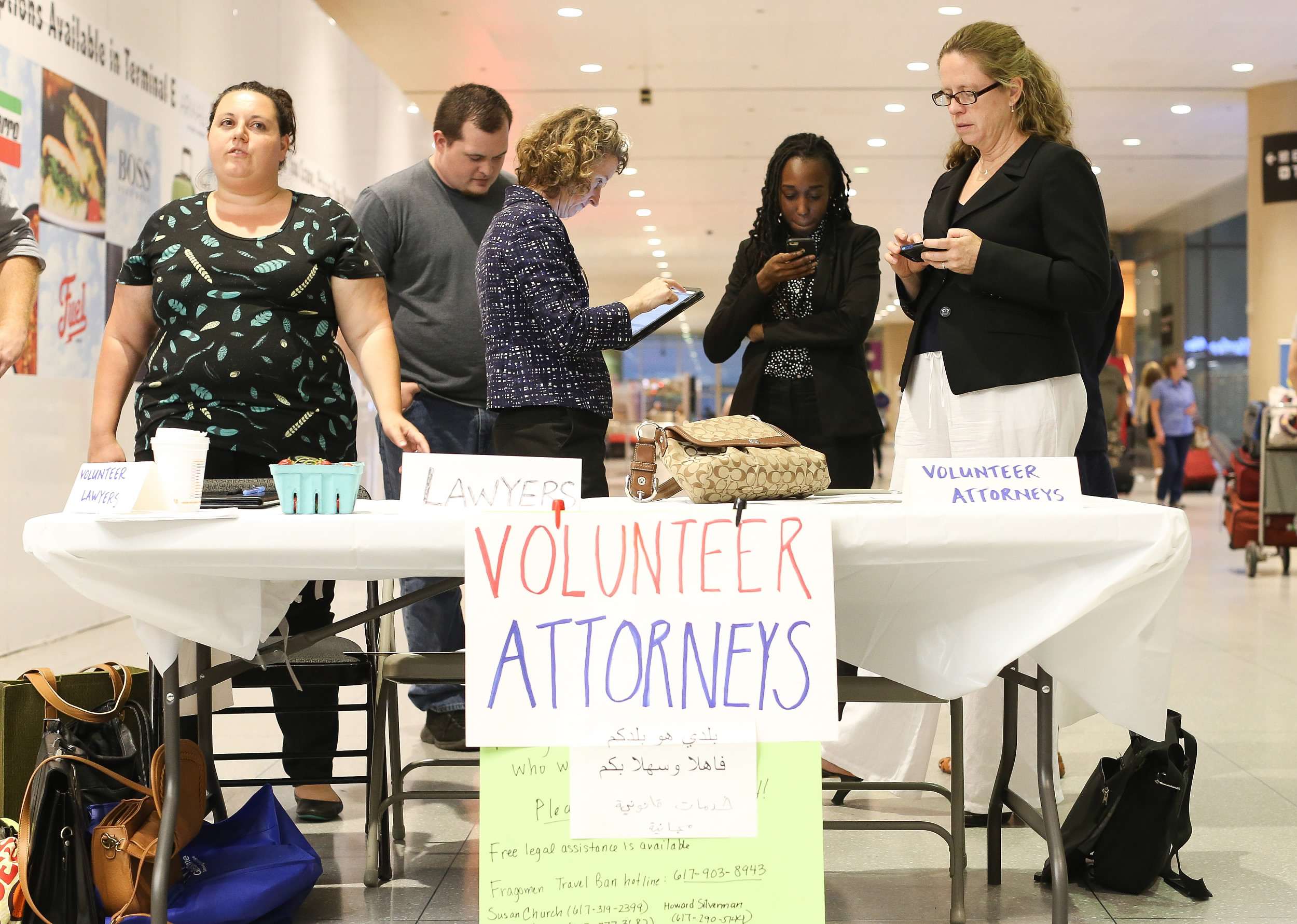
Politics
11:23, 30-Jun-2017
Who's allowed into US after travel ban rolled out

US President Donald Trump's travel ban comes into effect at 8 pm Thursday Eastern time (0000 GMT Friday).
The ban restricts entry by travelers from six mostly Muslim countries and on all refugees as controversy swirls over who qualifies for an exemption based on family ties.
Delayed by legal challenges until the Supreme Court partially backed Trump this week, the ban comes into effect at 8 pm Thursday Eastern time (0000 GMT Friday), putting tight restrictions on the issuance of visas to travelers from Iran, Libya, Somalia, Sudan, Syria and Yemen.
Immigrant rights groups and Democrats in Congress blasted a relatively narrow definition of who could continue to come based on "close family relationships."
But the Trump administration insisted the ban was necessary to protect the country from terror threats.

Activists protest on the first day of the the partial reinstatement of the Trump travel ban at Los Angeles International Airport. /CFP Photo
Activists protest on the first day of the the partial reinstatement of the Trump travel ban at Los Angeles International Airport. /CFP Photo
"As recent events have shown, we are living in a very dangerous time, and the US government needs every available tool to prevent terrorists from entering the country and committing acts of bloodshed and violence," a senior administration official told reporters.
Officials stressed that anyone with a valid visa issued before the ban begins would still be admitted, promising to avoid the airport chaos that accompanied the original travel ban announcement in January.
All authorized refugees booked for travel before July 6 will also be admitted.
"We expect business as usual at the ports of entry starting at 8 pm tonight," said a second administration official.
"Our people are well prepared for this."
Nevertheless, immigration activists and lawyers said they would be at airports to support any arrivals unfairly denied entry.
"The world is watching the United States of America, and what they are saying is, we thought that it was the country for opportunity and justice for all, but it does not seem that way," said Murad Awawdeh of the New York Immigration Coalition, speaking at New York's John F. Kennedy International Airport.

Volunteer attorneys are seen at Logan International Airport in Boston. / CFP Photo
Volunteer attorneys are seen at Logan International Airport in Boston. / CFP Photo
The ban imposes a 90-day halt on travelers from the six countries, and a 120-day ban on refugee entries, while the government reviews its vetting procedures.
But questions remain over the Supreme Court's decision on Monday to allow exemptions for anyone having a "bona fide relationship" in the United States.
According to guidelines issued in a State Department cable to embassies, that exemption will include people with "close family relationships" in the United States, defined to include parents, spouses, children, sons- and daughters-in-law, siblings and step- and half-siblings.
But "close family" does not include grandparents, grandchildren, aunts, uncles, nieces, nephews, cousins, brothers-in-laws and sisters-in-law, fiancés and any other "extended" family members, the guidelines say.
People with formal relationships with a US entity, who have for instance been offered a job or been accepted to study or lecture at a university, will also qualify for visas during the ban. But a hotel reservation, even if already paid for, does not qualify.
And the order stresses that non-profit groups cannot establish relationships with hopeful travelers or refugees just to allow them to skirt the ban.
(Source: AFP)

SITEMAP
Copyright © 2018 CGTN. Beijing ICP prepared NO.16065310-3
Copyright © 2018 CGTN. Beijing ICP prepared NO.16065310-3